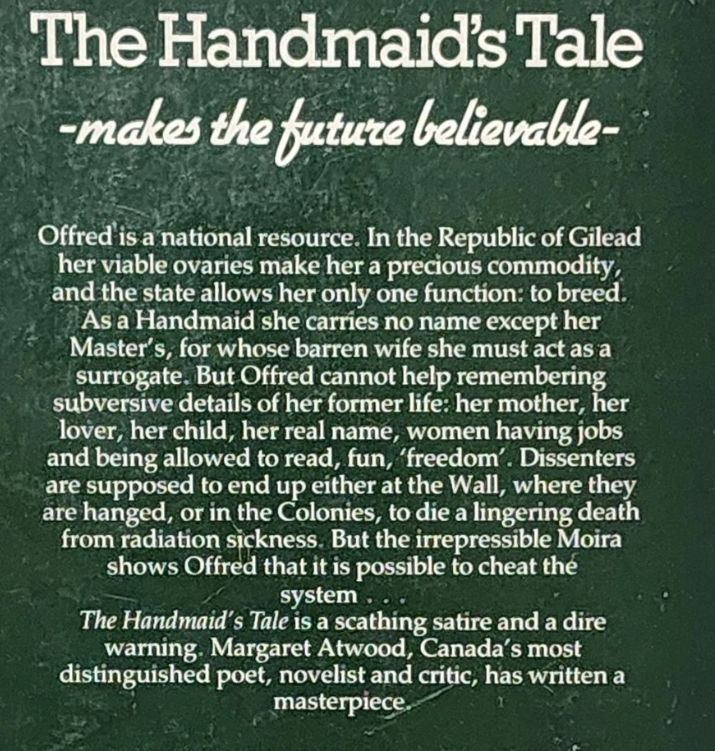Compare and contrast the novel that *did* win the Booker that year, Moon Tiger, by Penelope Lively, which probably feels more like SF now than then (dying woman sort of mentally time travels through her life, reconstructing it).
Replies
A book's called science fiction if it'll sell more copies if they put it out on the science fiction shelf. The original push for Handmaid's Tale absolutely knew that they'd sell some copies to SF nerds like me.
In the late 80s, Virago and the Women's Press were scooping up lots of feminist novels, regardless of 'genre'. Jody Scott's Passing for Human, where a shapeshifting alien adopts the from of (amongst others) Emma Peel, is science fiction, duh, but also absolutely 100% feminist literature.
The Virago edition of Handmaid's Tale was unashamedly both 'literature' and 'science fiction'. It was, of course, a superb book to use if you want to write an essay about feminism. I think it's the Virago imprint that cemented it on so many university syllabi.

